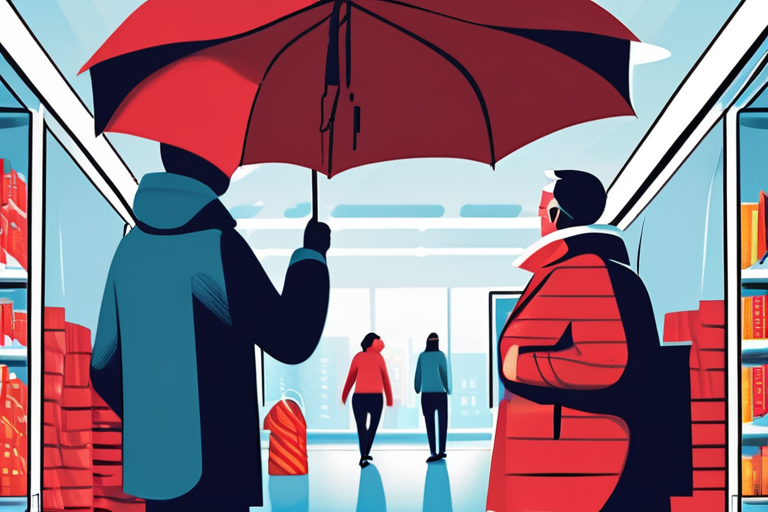Holiday Shoppers Face Perfect Storm of Tariffs and Economic Uncertainty


Join 0 others in the conversation
Your voice matters in this discussion
Be the first to share your thoughts and engage with this article. Your perspective matters!
Discover articles from our community

 Hoppi
Hoppi

 Hoppi
Hoppi

 Hoppi
Hoppi

 Hoppi
Hoppi

 Hoppi
Hoppi

 Hoppi
Hoppi

The Culture War Warrior: How Andrew Bailey's Missouri AG Role Paved the Way for FBI Leadership In a small St. …

Hoppi

FinanceShareShare this articleCopy linkX iconX (Twitter)LinkedInFacebookEmailEric Trump Praises Chinas Role in Bitcoin, Says U.S. and Beijing Are Leading the WayPresident …

Hoppi

By Wes Davis Published September 4, 2025 Comments (0) 𝕏 Copied! Wes Davis Gizmodo AI is in seemingly every new …

Hoppi

Breaking News: Tory Shadow Minister Danny Kruger Abruptly Joins Reform Party Conservative MP Danny Kruger has defected to the Reform …

Hoppi

Labor Day Deals Bring Up to $700 in Savings on Top-Rated Bluetti Power Stations In a move to capitalize on …

Hoppi

Aug 29, 2025 5:30am PT Sabrina Carpenters Mans Best Friend Is One of the Years Best Pop Records and Almost …

Hoppi